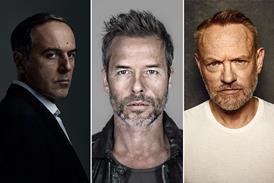- News
- Reviews
- Features
- Festivals
- Box Office
- Awards
 “The coolest kind of masterclass”: Chase Infiniti on the six-month audition process for ‘One Battle After Another’
“The coolest kind of masterclass”: Chase Infiniti on the six-month audition process for ‘One Battle After Another’ Inga Ibsdotter Lilleaas on unscripted moments and finding out her ‘Sentimental Value’ character was initially written as comic relief
Inga Ibsdotter Lilleaas on unscripted moments and finding out her ‘Sentimental Value’ character was initially written as comic relief Why first-time actor Miles Caton was “extremely ready” for his breakout role in ‘Sinners’
Why first-time actor Miles Caton was “extremely ready” for his breakout role in ‘Sinners’
- Subscribe

Subscribe to Screen International
- Monthly print editions
- Awards season weeklies
- Stars of Tomorrow and exclusive supplements
- Over 16 years of archived content
- The Screen Podcast
- Global production
A matter of factual: Do documentary festivals need to change their focus?
By Geoffrey Macnab2022-11-21T09:57:00

Source: Nan Goldin
As docs struggle at cinemas, change may be needed.
SIGN IN if you have an account
Do you want to keep reading?
Register for free access to five articles a month

Subscribe today and unlock access to:
- Unlimited film & TV news, reviews and analysis on Screendaily.com
- All print and/or digital editions of Screen magazine
- Breaking news alerts sent straight to your inbox
- Digital festival and market dailies
- Weekly awards magazines
Access premium content Subscribe today
If you have an account you can SIGN IN now
Subscribe to Screen International
Screen International is the essential resource for the international film industry. Subscribe now for monthly editions, awards season weeklies, access to the Screen International archive and supplements including Stars of Tomorrow and World of Locations.
Find out moreSite powered by Webvision Cloud














